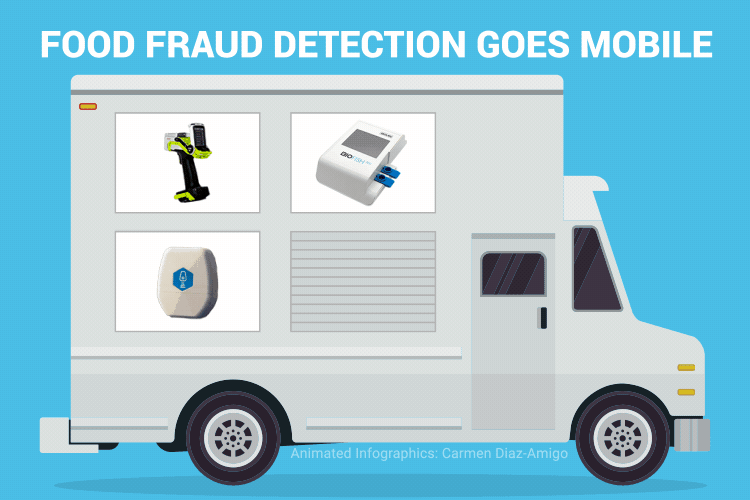
Since 2013 we all know that horse meat can lurk in our beef burgers. It was one of the major meat-related scandals of adulteration in Europe in the 21st century. Meat adulterations uncovered outside Europe were found to contain fox meat, mink meat and nutria meat.
Especially if meat is processed, e.g. minced, it is difficult to visually identify adulteration. The technique used to test for meat species is called PCR (Polymerase Chain Reaction), which uses DNA (Desoxyribo Nucleic Acid) specific for one or several species to determine presence/absence. PCR is a very delicate procedure, prone to contamination when not conducted with appropriate precautionary measures in place. It’s a typical laboratory procedure – not normally suited for in-field use. And depending on the method parameters, it may take 2-3 hours to yield a result.
What about if you could perform a similar procedure for species identification in the field, in significantly less time? Curious?
If you want to get the full story, attend our session “Food Fraud Goes Mobile” on Tuesday, September 10, 10:15-11:45, in the Grand Ballroom 2.
For more information about the AOAC Annual Meeting and the link to register, click this link.
Follow un on LinkedIn and Twitter:
#FraudDetection2Go
#AOAC2019AM








